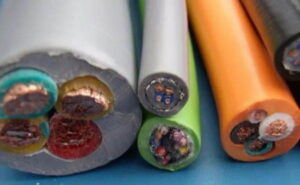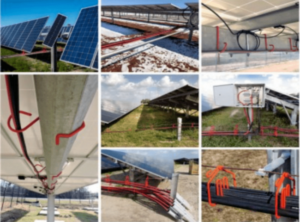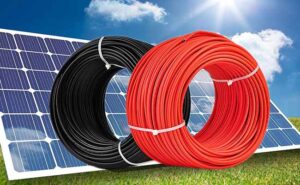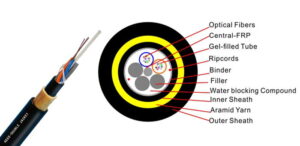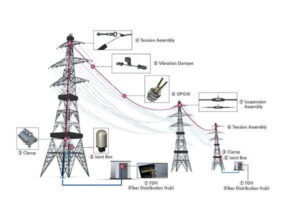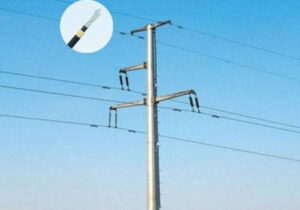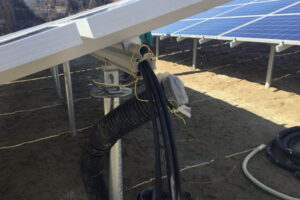YJV cables and VV cables are basically the same in function and both belong to the same category of power cables used for the transmission and distribution of electrical energy. But their differences are also very obvious. The following is a detailed description of the differences between the two.
INFORMATION
Welcome to the ZMS CABLE information blog, here is the cable industry knowledge sharing and technology popularization of the professional world. In this section, we focus on cable technology, product applications, and industry knowledge, carefully crafting a series of easy-to-understand and practical content, to provide readers with authoritative technical support and comprehensive industry interpretation.
Photovoltaic System Cable Design Selection And Construction
In addition to the main equipment in the photovoltaic system cable power plant construction process, such as photovoltaic modules, inverters, and step-up transformers. In addition to supporting the connection of photovoltaic cable materials to the overall profitability of the photovoltaic power plant. The safety of operation, whether efficient, also plays a vital role, the following is a detailed introduction to the use of common cables and materials in photovoltaic power plants and the use of the environment.
The cable according to the system of the photovoltaic power plant can be divided into DC cable and AC cable, according to the use and use of different environments are classified as follows.
Introduction To Photovoltaic Cables And Instructions For Their Use
What Makes Photovoltaic Cable
Photovoltaic cable is composed of polyvinyl chloride insulation, sheath, sheath outer sheath, cross-linked polyethylene insulation, intermediate sheath, insulated conductor, shield and jacket, etc.
There are many varieties of photovoltaic cables, and what we usually call photovoltaic cable refers to the comprehensive cable products based on solar panels, various types of cable fittings, electrical components, etc., and control systems, power cables and other electrical equipment, integrating photoelectric information and electronic products.
The Most Detailed Introduction Of Cables For Offshore Oil Platforms
In recent years, as countries have increased their investment in the energy sector, the investment in energy construction has been increasing, and the demand for energy production safety will become more urgent on a global scale. An offshore oil platform is one of the main facilities for offshore oil extraction and one of the main facilities used for onshore oil drilling platforms.
Composition and Working Principle of The Photovoltaic Power Generation System
Photovoltaic power generation system mainly consists of PV modules, a controller, an inverter, a battery, and other accessories (grid-connected does not need a battery).
Depending on whether it depends on the public grid, there are two types of PV systems: off-grid and grid-connected, of which off-grid systems operate independently and do not depend on the grid. Off-grid PV systems are equipped with storage batteries to ensure the stability of the system power and to supply the load with electricity when the PV system does not generate electricity at night or when the electricity generation is insufficient on rainy days.
Introduction To The Problems In The Application Of ADSS Fiber Optic Cable
Under the trend of the gradual growth of electricity consumption in society, higher requirements are also put forward for the performance of power communication networks. A good communication condition must be guaranteed to enhance the safety and stability of the power system and provide users with more quality power supply services.
The application of ADSS fiber optic cable communication in practice can effectively expand the transmission capacity and guarantee the efficiency of signal transmission, which is the key to promoting the sustainable development of China’s electric power industry and meeting the current requirements of smart grid construction.
ADSS Fiber Optic Cable Relocation and Removal Need to Consider Factors
ADSS Cable Relocation Considerations
1. Verify The Communication Business Carried By ADSS Cable Across The Line
ADSS fiber optic cable usually carries important electric power communication services before removal needs to verify the business carried across the line.
For example, the power supply company verifies all the services carried by the crossed line through the information of the fiber optic cable line, TMS communication management system and the signage hung at the site.
The Role Of ADSS Fiber Optic Cable And The Requirements When Laying
The Role Of ADSS Fiber Optic Cable
In actual use, the role of fiber optic cable is very much, according to different areas and purposes, and the service is also different. The role of fiber optic cable is mainly communication and transmission of data.
For example, in the network construction of fiber to the home application, we can also access the fiber to the home or outdoors for use. A fiber optic broadband network has a more obvious advantage in that it can be used interchangeably with the ordinary broadband network.
So we can transform and upgrade the fiber optic broadband network to ADSS fiber optic cable for use.
A Comprehensive Introduction To The Characteristics Of Photovoltaic Cables
Characteristics Of Photovoltaic Cables
Photovoltaic cable is an important device in photovoltaic power generation systems. It can be used in power systems or communication lines as relay equipment when transmitting power from a power source.
The cable should have reliable physical characteristics such as temperature resistance, flame retardancy, and insulation properties. Photovoltaic cables generate harmful heat when working in high-temperature environments, which affects the cable performance.
The Role Of Cable Wind Power Projects
In China, wind power generation has become one of the important energy sources for economic and social development.
In recent years, China’s wind power industry has developed rapidly, and wind power, as a clean and efficient way of energy, will play an important role in the construction of society in the future.
However, wind turbines will produce a lot of dust and high temperature, high pressure, and other harsh environment in work, if not controlled will cause great harm to the power grid.
